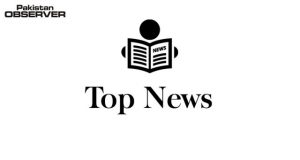United Nations
The head of the UN Economic and Social Council (ECOSOC), Ambassador Munir Akram of Pakistan, has called for boosting international development cooperation to help Coronavirus-battered countries to achieve a resilient, sustainable and inclusive recovery.
“We are all aware that the current crisis has transcended all borders, but at the same time it is painfully obvious that developing countries have suffered disproportionally from the unprecedented economic, social and health emergency triggered by the pandemic,” he said in a video message to Civil Society meeting of Financing for Development in the Era of COVID-19 and Beyond.
“The voices of civil society – your voices – will play a vital role not only by contributing your expertise but also by amplifying the call for a sustainable, resilient and inclusive recovery from COVID-19,” he told the meeting..
Among the actions to enable the nations rebuild from the pandemic’s onslaught, Ambassador Akram said it was the imperative to address the debt vulnerabilities and liquidity requirements of developing countries.
In this regard , he cited Pakistan Prime Minister Imran Khan’s initiative for debt relief, saying that since last May concrete policy proposals have been discussed in an ECOSOC group. These include extension and expansion of debt service suspension initiative, debt cancellation, debt swaps; and debt buybacks.
He also proposed the creation of new Special Drawing Rights S(DRs) and repurposing of the existing unutilised SDRs to support developing countries, as also private sector participation in economic revival.
Apart from contributing to debt moratoria, the ECOSOC chief said private creditors could also devise mechanisms to lower the interest rates paid by developing countries on loans from the market.
Investment flows, including those from stimulus packages, he said, should prioritize investment in sectors aligned with the Sustainable Development Goals (SDGs), such as infrastructure in renewable energy, water and sanitation, transport, information and communication technologies, health, and education.
Also, there was a need for an integrated facility under the UN umbrella designed to harmonize investment policies and help developing countries in preparation of project and feasibility studies, and in accessing financing from both public and private sources.
“The pandemic is an opportunity to put in place an equitable international tax regime to enable developing countries to generate adequate domestic revenues to finance the SDGs,” Ambassador Akram said.–APP









